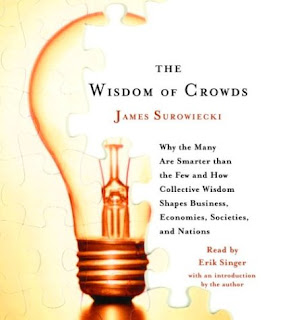The greatest master is he who creates the most masters
Tao te Ching
Whenever I think about leadership in e-learning communities within the field of ELT, these are the following people who immediately spring to my mind as long-running, long-serving and highly experienced e-moderators:
(From top: Carla Arena, David Deubel, Duncan Baker, Gladys Baya, Tara Benwell & Vance Stevens)
At a minimum, without counting, I belong to at least 50 different web2.0 groups: on LinkedIn, Xing, Orkut, Google, Facebook, Ning, Moodle and Yahoo!Groups.
My role on these varies across the different platforms: for most of these, I am a lurker(!), on others I contribute infrequently, responding to a call out for help or providing monthly blog summaries - not just of my own blog:), and on others, I contribute very often.
In some, I actively and regularly engage in lively debates - sometimes heated exchanges on methodology, technology and pedagogical best practices.
I even run two groups aimed at other English teachers:
one of which is on Facebook (strictly connected to my blog and helping my readers who choose to connect with me there) and one is entirely dedicated to enabling
ELTbloggers to meet each other and collaborate across the blogosphere. I also have groups where I work in private blended learning courses with students.
BUT... I wouldn't begin, not even for a second, to put myself in the knowledge categories of those I've pictured above.*
And that makes me wonder:
what is it, that creates an amazing e-community leader?
Many people believe, like
rules, that having a specific leader isn't necessary and that communities can drive themselves. On some this does work, on others it doesn't. Fact is, some leaders created their groups to serve their own
(financial) agendas and simply do not communicate, care about or give anything back to their members. Some started their communities as part of an experiment in e-learning, something to put on the CV because it looks cool, some gave up on the concept way before their group reached critical mass and others have been taken over by trolls, spammers and pirates.
I've seen, first hand, throughout the last three years that great leadership is not something to take lightly and is something to take special note of. But what are the qualities these people possess? Is it the desire to share?
How are they able to lead others - people which, most of the time, they have only met online? Did they learn how to do this, read books - which ones? Or was it a skill they simply innately possessed dormant until the internet was born?
Let's do a quick experiment, for a second, read this ad:
I wonder...
How would the rest of the job ad read?
Best,
Karenne
**Although there are many, many, many other online edu-group leaders I could have featured in the mosaic above, I have specifically chosen ones in the field of ELT where there has been a clear leadership model over a long period of time, in communities I belong to or participated in. However, please don't hesitate to recommend other great moderators you have also noted.
Pictured:
This posting is part of a series, Crowd Wise, and is, in part, preparation for the swap-shop on web based communities at the IATEFL conference in Harrogate, April 8th, 2010. Your answers, as brief or as in-depth as you'd like to be, is very much appreciated!
To subscribe to all the posts within this specific series, copy and paste this url:
Note: if you would like to participate in this conversation anonymously, please do feel free to do so. Alternatively, if you would like to specifically mention an online educational community when making reference to your experiences, adding your group's name and/or its URL, you are most welcome to!


































